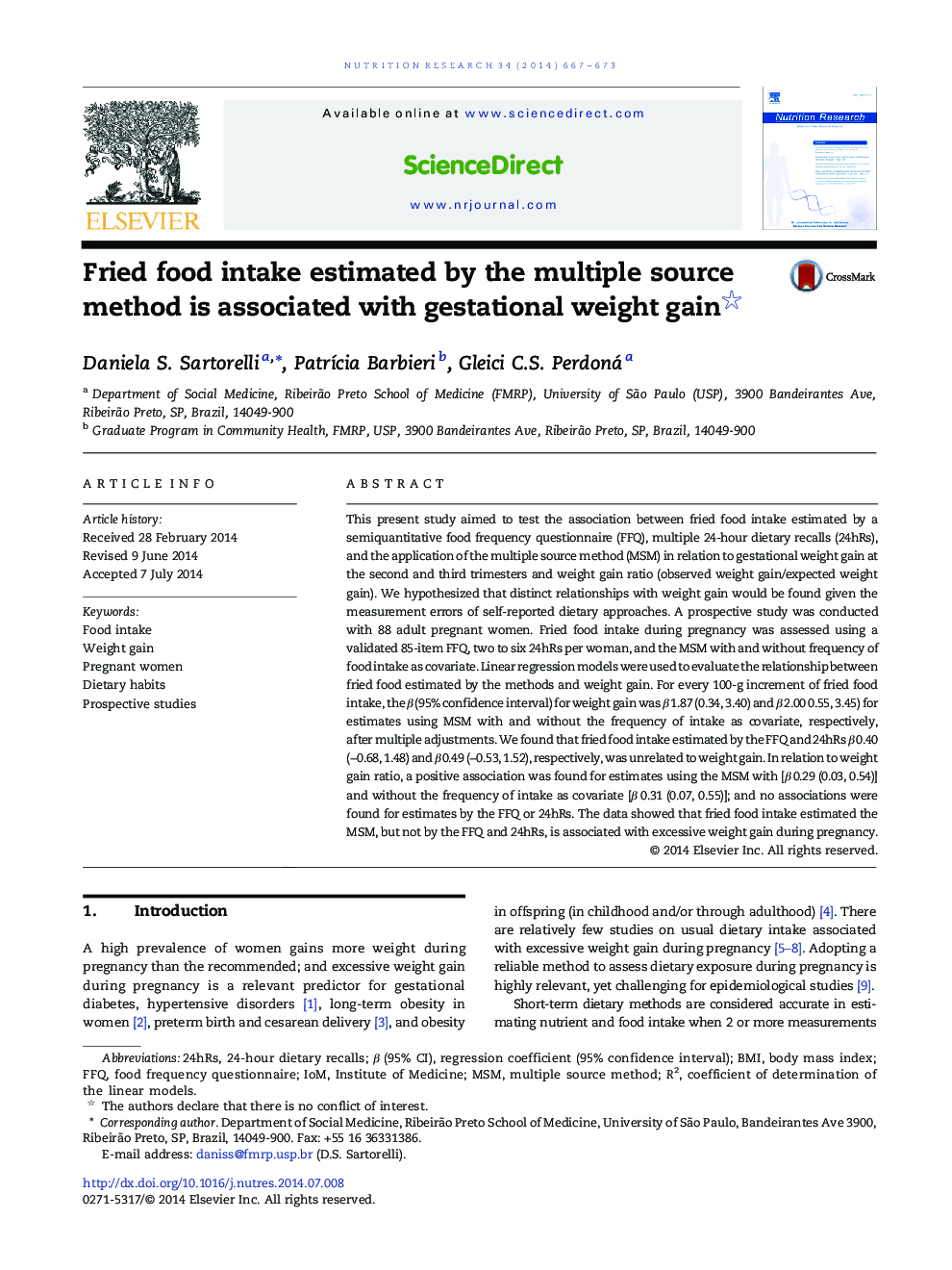| Article ID | Journal | Published Year | Pages | File Type |
|---|---|---|---|---|
| 5904358 | Nutrition Research | 2014 | 7 Pages |
This present study aimed to test the association between fried food intake estimated by a semiquantitative food frequency questionnaire (FFQ), multiple 24-hour dietary recalls (24hRs), and the application of the multiple source method (MSM) in relation to gestational weight gain at the second and third trimesters and weight gain ratio (observed weight gain/expected weight gain). We hypothesized that distinct relationships with weight gain would be found given the measurement errors of self-reported dietary approaches. A prospective study was conducted with 88 adult pregnant women. Fried food intake during pregnancy was assessed using a validated 85-item FFQ, two to six 24hRs per woman, and the MSM with and without frequency of food intake as covariate. Linear regression models were used to evaluate the relationship between fried food estimated by the methods and weight gain. For every 100-g increment of fried food intake, the β (95% confidence interval) for weight gain was β 1.87 (0.34, 3.40) and β 2.00 0.55, 3.45) for estimates using MSM with and without the frequency of intake as covariate, respectively, after multiple adjustments. We found that fried food intake estimated by the FFQ and 24hRs β 0.40 (â0.68, 1.48) and β 0.49 (â0.53, 1.52), respectively, was unrelated to weight gain. In relation to weight gain ratio, a positive association was found for estimates using the MSM with [β 0.29 (0.03, 0.54)] and without the frequency of intake as covariate [β 0.31 (0.07, 0.55)]; and no associations were found for estimates by the FFQ or 24hRs. The data showed that fried food intake estimated the MSM, but not by the FFQ and 24hRs, is associated with excessive weight gain during pregnancy.
